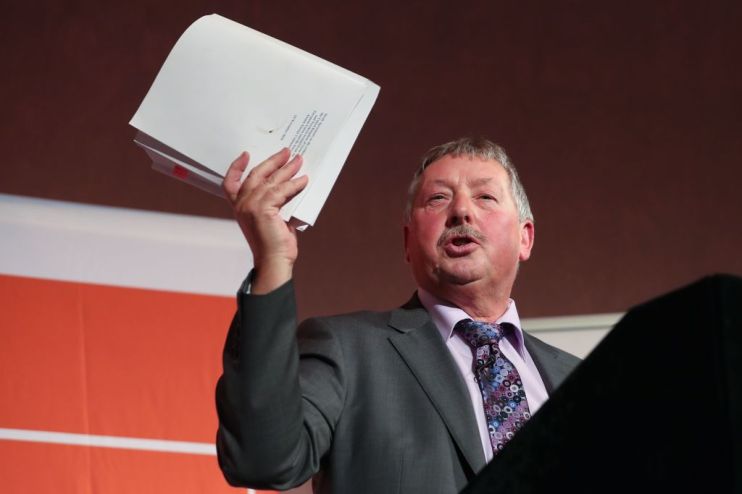DUP’s Sammy Wilson warns Westminster that Northern Ireland will have its voice heard loud and clear in Brexit negotiations

Boris Johnson may be going all-in to get a Conservative majority this election, but the jury is very much still out as to whether he will achieve his aim.
Many in Westminster believe that despite the polling numbers, come the morning of 13 December the country will find itself saddled with yet another hung parliament.
This will benefit Remain-leaning parties.
Read more: Labour party has no excuse for its anti-business agenda
The Liberal Democrats’ candidate Chuka Umunna has repeatedly pointed to the fact that backbenchers have managed to drive the agenda and shape legislation without the powers afforded a government.
And in these strange times, arch-Remainers could well find themselves helped out by the Tories’ former confidence and supply partners the Democratic Unionist Party (DUP).
Current polling suggests the DUP may lose one or two of its 10 seats —but that could still leave the Northern Irish party in the position of kingmaker to a Tory party that has few alternatives.
Sammy Wilson, the DUP’s Brexit spokesman and supporter of the Leave Means Leave group, is quietly confident his party will do well in the election owing to the “alarm and distress” caused by Johnson’s Brexit deal.
But he is less convinced about the Tories’ chances of success.
“The election is a huge gamble for the government,” says Wilson.
“The combination of the Brexit Party eating away on one side, the Lib Dems on the other — ironically in seats with strong Leave Conservative MPs on small majorities like [Chipping Barnett’s] Theresa Villiers — means this election isn’t a sure-fire winner.”
Whereas the 2017 confidence and supply deal was struck at speed for the eye-catching sum of £1bn, any partnership agreed this time would be a very different beast.
Johnson’s Brexit deal has been emphatically rejected by the unionists, who argue it would create a border in the Irish sea that would have both economic and constitutional implications.
But Johnson’s current “intransigence” is part of his election pitch, Wilson argues with a smile.
“Once that’s over they may well say ‘if your continued support depends on this…’ — well, put it this way, we drive a hard bargain.”
“Publicly they are saying this deal is the only deal available, but they said that about the last deal.”
And if the PM remains stubbornly committed, the DUP has other tactics up its sleeves — including working with Umunna and pals to block the Withdrawal Agreement Bill (WAB) outright.
“We have said we will use every strategy and tactic available to us,” Wilson says.
“Don’t forget, Theresa May’s bill was killed by the ERG [European Research Group] and ourselves working with Remain groups. We couldn’t have done it ourselves. They had different reasons for it, but it had the same effect.”
The most likely option will be to ram the WAB full of wrecking amendments until the Tories have no option but to vote against their own bill.
Read more: Boris Johnson is right on corporation tax
Wilson says the DUP will consider backing amendments “regardless of our view of them”, including a second referendum and a customs union, “because we know if they go into the bill, it would never happen”.
The ultimate aim is to ensure Johnson fails to meet the current deadline of 31 January to have everything signed off.
“If you have a situation where the bill is still not ratified, the more chance there is of it unravelling,” Wilson says.
On Johnson himself, Wilson is characteristically honest. He says the PM hasn’t “behaved properly”.
“In our kind of politics — the politics of Northern Ireland — you don’t make those promises to people and then tear them up less than a year later,” he says. “People trusted him, and he hasn’t honoured that trust.”
Despite this, Wilson still believes Johnson is persuadable in a way that May wasn’t — her intention was always to keep the UK as close as possible to the EU, whereas Johnson’s objective was just to get a quickfire deal to cement his position domestically.
“The battle about whether or not Britain stays in the single market is not yet over,” Wilson says.
“Those people in the House of Commons who fool themselves that in backing this deal they have released themselves [from the EU] really are being very naive — as they’ll soon find out.”